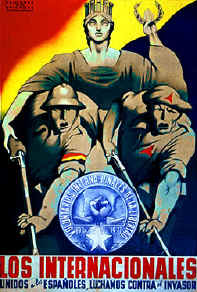
For fox's sake, Kate, give it up ...
Malcolm cannot remember in which year Harold Wilson was chairman of the Labour Party (in those days the chair rotated round the members of the National Executive), but it probably was 1959. That year, on some obscure premise, James Connolly's Starry Plough flag was paraded through the Conference arena.
Then, as now, there were occasional rumblings about the Labour Party organising in Northern Ireland. It was not something to be taken too seriously then or now.
In those days, it was argued that there was a Labour Party in Northern Ireland (NILP). NILP never made any great shift outside of Belfast, but it had its moments. It actually elected an MP to Westminster in 1943, when its long-term leader, Jack Beattie, was returned for West Belfast. Harry Midgley, the Stormont Minister of Education in the 1950s, on his long march from Marxist-Leninism to the Ulster Unionism, had been in and out of NILP. In Malcolm's Dublin days, the Leader of NILP was Tom Boyd.
Today, the argument is that the SDLP is a fellow with the Labour Party in the Socialist International, so has bragging rights in the Six Counties. A rump of NILP campaigned for the Union in the 1973 Referendum, and self-evidently did not assimilate into the SDLP. Out of this came a group calling itself Labour '87, pushing for the British Party to organise in the North. The name of NILP is, apparently, still registered with the Electoral Commission. The last known sigh was in 2003, after Andy McGivern threatened to use the Human Rights Act, and the British Labour Party quietly dropped its ban on membership in the Six Counties. All searches for the Labour Party in Northern Ireland seem to bring one back to Athol Books (which operates from post boxes) and the Irish Political Review.
Which brings us back to Kate Hoey, for Catharine Letitia remains one of the few boosters for the daft idea of British Labour Party organisation in Northern Ireland. She is as out-of-order on this as she is on killing-foxes-for-kicks.
First, there are the sheer pragmatics to be considered. Politics in the six counties are riven on sectarian lines: something that will long outlast Malcolm and his generation. To put the issue bluntly, does Labour in the UK (or, hypothetically, in the UK & NI) accept the border as immutable? If so, it would stand in the North as a Unionist Party. If not, it is in competition with the SDLP and Sinn Fein. The Alliance Party (i.e. middle-class Lib Dems in green-and-orange drag) tried to find space between the two sides: on recent outings, it has taken 4-5% of the vote.
Second, who finances this quixotic gesture? Malcolm expects a quick shuffling of feet, but not of wallets, on that one. With no organisation on the ground, the money would need to come in from London: fat chance, says Malcolm. And, to be credible, Labour would have to fight all 18 constituencies, which means vote-splitting and lost deposits.
Third, what is the use of such a move? If any future Parliamentary majority (for any UK party) depends on support from Northern Irish members, that way madness lies. Without exception, the 18 MPs elected from the six counties are there to extract factional concessions and pork from Westminster: ideology and loyalty are a long way behind. And the more desperate the Parliamentary arithmetic, the higher the price.
Electoral calculations apart, let's allow principle in for a moment. And let's admit the inadmissible: that the "new" Unionists are OK-ish on social policy (provided the book of Leviticus is kept out of the equation). That is understandable. The "old" Unionist Party was based on deference: landowners ran the policy and sat in Parliament, while the Orange ranks provided uncomplaining voting fodder. When that cracked, the Democratic and Progressive Unionists (and other pale imitations) emerged. The PUP, of and for the urban working class, though now apparently on the way out, was explicitly left-wing. The DUP, more rural and small-business, is pretty right-wing on most issues, but supports investment in health and education. The policy statements of Reg Empey's Unionists are encouraging and cohere with those of Labour: free pre-school, "a new, fairer method of academic selection", action to reduce the brain-drain (and that needs decoding), free personal care for the elderly, an "anti-poverty strategy", investment in health.
Of course, it could be argued that the forthcoming General Election in the Republic (due before next July) could, just could achieve some tectonic shift. The last poll Malcolm saw (in the Sunday Tribune for 10th September) had Fianna Fail at 37 % (just about comfortable and rising, provided -- oops! Mr Taoiseach! -- no great fall out), Fine Gael at 26% (coming back from the great melt-down), Labour at 15% (and seemingly going nowhere) and Sinn Fein at just 8% (isn't it marvellous what a period of peace-and-quiet can do?). If that pattern persists, it's going to be fun putting a coalition together. However, sweet reason says that, one way or another, Fianna Fail should keep some sort of control. Hard luck, then, Mr Adams: close but no cigar.
So, all in all, a Northern Ireland strategy for Labour is a no-brainer. Don't. And tell Kate it's a load of hooey. Sphere: Related Content







